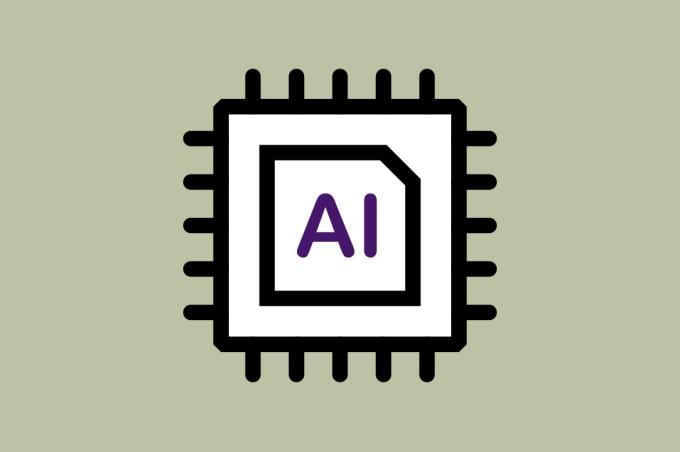Physicians’ use of health care augmented intelligence (AI) for certain tasks nearly doubled in just one year, and enthusiasm for the technology is growing even if some doubts still linger, says a recently released AMA survey.
Nearly two-thirds of physicians, 66%, surveyed reported using health care AI—often called artificial intelligence—in 2024. Among other things, physicians are finding uses for AI for documentation of billing codes, medical charts or visit notes; creation of discharge instructions, care plans or progress notes; translation services, assistive diagnosis and more. The 66% usage rate marks a 78% jump from the 38% of physicians who said they used it in 2023.
The AMA survey (PDF) examines changes in physician sentiment toward health care AI between summer 2023 and last fall, and offers insight into physicians’ evolving perspectives on adopting and using health AI. Researchers surveyed nearly 1,200 physicians who varied by specialty, employment and ownership type.
Overall, 35% of physicians reported that their enthusiasm for health AI exceeded their concerns, up from 30% who felt that way a year earlier. Those who said their concerns exceeded their enthusiasm for the technology dropped to 25% in 2024, down from 29% in 2023. Physicians who were equally excited and concerned remained about the same—with two in five physicians feeling that way.
“The AMA survey illustrates that physicians are increasingly intrigued by the assistive role of health AI and the potential of AI-enable tools to reduce administrative burdens, enhance diagnostic accuracy, and personalize treatments,” said AMA Immediate Past President Jesse M. Ehrenfeld, MD, MPH.
From AI implementation to EHR adoption and usability, the AMA is fighting to make technology work for physicians, ensuring that it is an asset to doctors—not a burden.
Four key takeaways
The survey provides these four key insights into where physicians stand on AI.
There has been substantial growth in physicians using AI in practice. In addition to 66% of physicians reporting they used AI in 2024, there was a dramatic drop in the number of physicians who reported being nonusers. In 2024, just 33% of physicians reported that they didn’t use AI in any of the ways the study inquired about. A year earlier, 62% of physicians said they didn’t use AI.
Physicians have a more positive sentiment and increased enthusiasm toward AI, with growing recognition of the benefits the technology can offer. Among physicians surveyed most said that they recognized AI’s benefits, with 68% reporting that AI had definite at least some advantage in patient care. That’s five percentage points higher than it was in 2023.
Physicians believe that one of the key areas of opportunity with AI is using it to address administrative burdens. More than half of physicians—57%—said reducing administrative burdens through automation was the biggest area of opportunity for AI. Physicians in the near term are focused on adopting AI that helps with documentation.
Physicians still expressed that key needs must be met for them to build trust and advance their AI adoption. A feedback loop, data privacy assurances, seamless workflow integration and adequate training and education are the critical things that physicians said they need to adopt AI. Nearly half of physicians surveyed—47%—ranked increased oversight as the number one regulatory action that needed to happen to increase their trust in adopting AI tools.
“There remain unresolved physician concerns with the design of health AI and the potential of flawed AI-enabled tools to put privacy at risk, integrate poorly with EHR systems, offer incorrect conclusions or recommendations and introduce new liability concerns. Increased oversight ranked as the top regulatory action needed to increase physician confidence and adoption of AI,” Dr. Ehrenfeld said.
Find out how members of the AMA Health System Program are using AI to make meaningful change.
How physicians use AI today
Among the three of every five physicians that told researchers that they use AI for one or more of 15 tasks the survey inquired about, these are the areas that had the largest percentage of physicians using AI for the task.
The percentage of physicians who reported using AI for the task in 2024 is followed by the percent of physicians who reported using it in 2023:
- Documentation of billing codes, medical charts or visits notes: 21%, up from 13%.
- Creation of discharge instructions care plans and/or progress notes: 20%, up from 14%.
- Translation services: 14%, up from 11%.
- Summaries of medical research and standards of care: 13%, up from 6%.
- Assistive diagnosis: 12%, up from 11%.
- Generation of chart summaries: 12%, up from 8%.
- Patient-facing chatbot for customer service functions: 10%, up from 8%.
- Patient-facing health recommendations and self-care engagement: 10%, up from 8%.
In addition to fighting on the legislative front to help ensure that technology is an asset to physicians and not a burden, the AMA has developed advocacy principles (PDF) that address the development, deployment and use of health care AI, with particular emphasis on:
- Health care AI oversight.
- When and what to disclose to advance AI transparency.
- Generative AI policies and governance.
- Physician liability for use of AI-enabled technologies.
- AI data privacy and cybersecurity.
- Payer use of AI and automated decision-making systems.
Learn more about applying AI to transform health care solutions with the “AMA ChangeMedEd® Artificial Intelligence in Health Care Series.”




